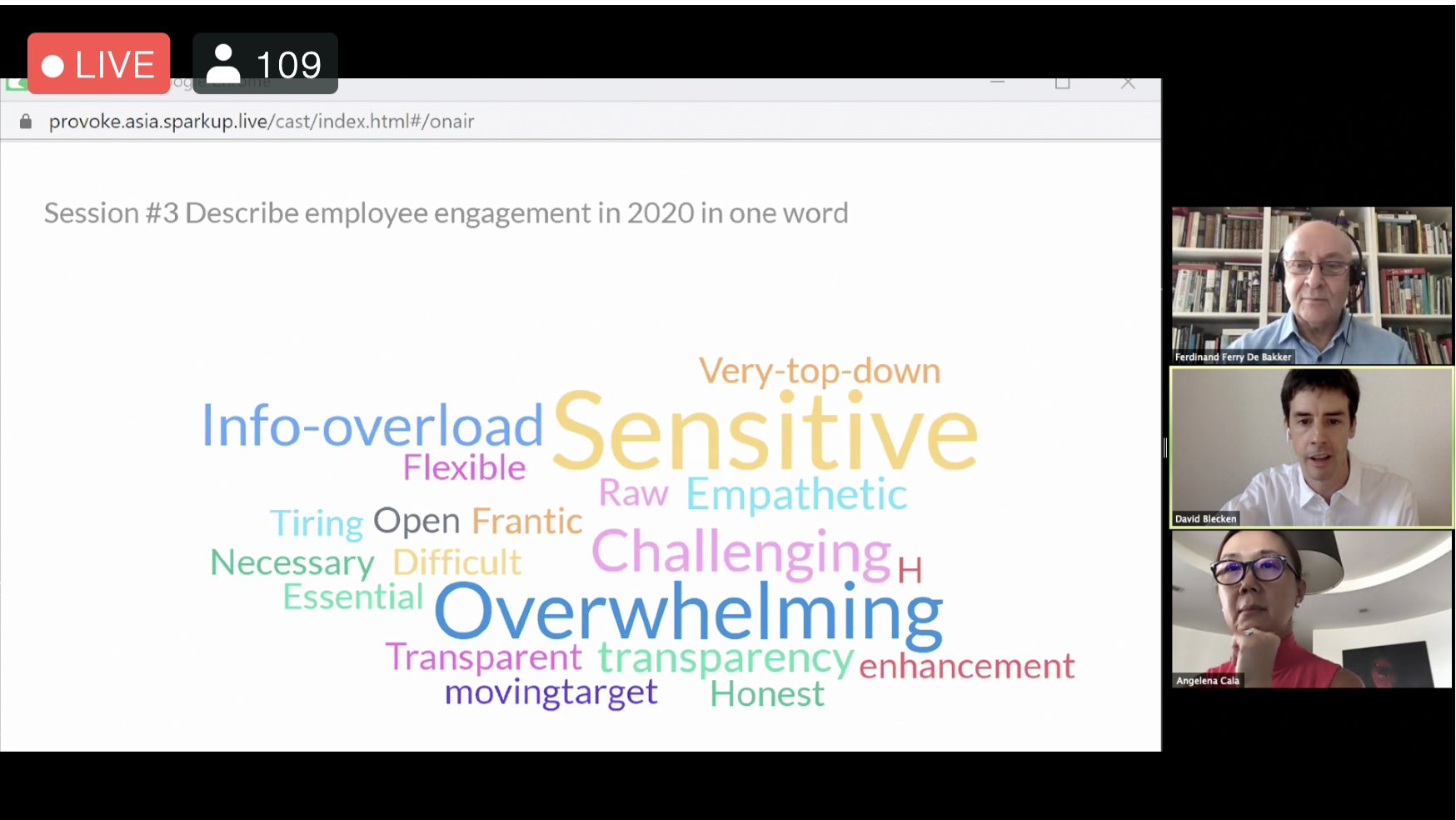Diana Marszalek 25 Sep 2020 // 7:12AM GMT

HONG KONG — While organizations started putting a premium on employee engagement before the coronavirus outbreak, their relationships with staff have become stronger and richer as the result of the pandemic, during which employee buy-in has become an ever-more critical component of companies’ success, according to industry experts.
“It’s about the leaders connecting with employees … in a very humane way, saying ‘How are you doing? What’s been happening in your life? How’s working from home been for you?’ and really trying to connect intimacy between employees and organizations that had often been seen as large institutions without some degree of humanity,” said Angelena Cala, Standard Chartered Bank’s global head of HR for commercial, corporate institutional banking products. “Human. That’s what I think employee engagement in 2020 is about.”
Cala was one of three panelists who engaged in a far-reaching discussion on employee engagement — where it is at, and where it is going — Thursday as part of the APACD session at PRovoke Media’s 2020 Asia-Pacific Summit. Karen Wong Chayavirabood, Abbott’s regional director of public affairs, and Ferry De Bakker, an adjunct lecturer at NTU’s Wee Kim Wee School of Communications also participated.
As Cala pointed out, the pandemic was an inflection point for organizations’ relationships with their employees, one at which companies and their leaders were pushed to take employee engagement beyond the likes of using questionnaires as a barometer of staff sentiment and one-way conversations from the top down.
“A good leader doesn’t need a survey to tell them how engaged employees are,” she said. “What Covid has done is made industry go beyond surveys.”
Chayavirabood said that over the last six months “the whole balance has shifted, and made us rethink what employee engagement is about,” adding that people taking pride in their work is key in them wanting to do it — and do it well.
“Now more than ever we have noticed the importance of the company’s purpose and values, how does their work impact the community that they serve,” Chayavirabood said. Abbott has fostered that, she said, by providing and engaging employees in a platform that enables them to communicate with colleagues around the world, and empowers them as storytellers.
Companies saying employees are their most important stakeholders only goes so far, she said. “We need to take it even further by (acknowledging) they are our customers, they are at the center of everything we do,” she said.
De Bakker said that while the pandemic has elevated the importance of companies creating the kind of cultures that employees want to be part of, their primary reason for creating richer employee experiences is because the battle for talent has intensified.
“Organizations need to engage with employees better than they have done before to attract talent and to keep it rather than lose it to the competition,” he said.
Panelists noted that the need to reach and retain employees during the pandemic fueled collaboration among company leaders, as comms and HR departments, as well as CEOs, are rallying around the importance of helping employees power through the current crisis.
“We restarted that collaboration and alignment to what do we need to do for employees, what do we need too for shareholders and what do we need to do for society, and that message has to be consistence,” Cala said.
“There is still tension. But the benefit of us coming together during the pandemic has shown us there is a different way of working,” she said.
Chayavirabood said she believes that organizations’ heightened emphasis on employee engagement will persist past the Covid pandemic, as will the benefits of having employee buy-in.
“This trend will continue. We need to create a culture where employees feel proud, understanding their work and what they do in a company and how their companies’ success is contributing (to society),” she said.


































.jpg)






.tmb-135x100.jpg)











